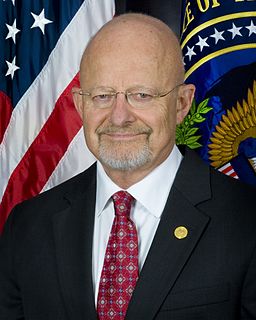A Quote by Misha Glenny
The sort of sweeping parochial espionage and attempts to extract information from all sorts of institutions are well documented, but I think in this context there's a danger of oversimplifying and seeing that sector of cyber as a one-way street.
Related Quotes
We need to make sure that whenever we're engaging in a cyber-warfare campaign, a cyber-espionage campaign in the United States, that we understand the word cyber is used as a euphemism for the internet, because the American public would not be excited to hear that we're doing internet warfare campaigns, internet espionage campaigns, because we realize that we ourselves are impacted by it.
Broadly speaking, the problems with the Espionage Act are that it is hopelessly broad. And we tend to use the Espionage Act - we think about the Espionage Act as forbidding disclosures of classified information. That's not really what the statute says. What the statute talks about is information related to the national defense.
What we're going to do with cyber-attacks - and we have already actually started - we started well before the executive order actually was issued - is working with the private sector, determine how best to share information, because, you know, we can't help until we know that there has actually been an attempted intrusion or attack. Information-sharing piece is very important.
Before getting to my mother's house, I would always think of her on the porch or even on the street, sweeping. She had a light way of sweeping, as if removing the dirt were not as important as moving the broom over the ground. Her way of sweeping was symbolic; so airy, so fragile, with a broom she tried to sweep away all the horrors, all the loneliness, all the misery that had accompanied her all her life.
Well, there's a question as to what sort of information is important in the world, what sort of information can achieve reform. And there's a lot of information. So information that organizations are spending economic effort into concealing, that's a really good signal that when the information gets out, there's a hope of it doing some good.
Well, there's a question as to what sort of information is important in the world, what sort of information can achieve reform. And there's a lot of information. So information that organizations are spending economic effort into concealing, that's a really good signal that when the information gets out, there's a hope of it doing some good...
In terms of my conversations with [Vladimir] Putin, these are conversations that took place before the election. As I indicated, there has been very clear proof that they have engaged in cyber attacks. This isn't new. It's not unique to Russia. There are a number of states where we've seen low-level cyber attacks and industrial espionage and, you know, other behavior that we think should be out of bounds.
One can think of a secretary actively operating a filing system, of a librarian actively cataloguing books, of a computer actively sorting out information. The mind however does not actively sort out information. The information sorts itself out and organises itself into patterns. The mind is passive. The mind only provides an opportunity for the information to behave in this way. The mind provides a special environment in which information can become self-organising. This special environment is a memory surface with special characteristics.
Our adversaries - terrorists, foreign intelligence services, and criminals - take advantage of modern technology to hide their communications; recruit followers; and plan, conduct, and encourage espionage, cyber attacks, or terrorism to disperse information on different methods to attack the U.S. homeland and to facilitate other illegal activities.
There are all sorts of institutions in the economic world which depart from the simple price/market model which I worked on in an earlier incarnation and which has been sort of the mainstream of economic theories since Adam Smith and David Ricardo. There are all sorts of contractual relations between firms and individuals which do not conform to the simple price theory - profit-sharing schemes and so forth - and the explanation for these suddenly became clear. We now understand why these emerged and that they are based on differences in information in the economy.
We have a way of dealing with information that has sort of personal - personally identifying information in it. But there are legitimate secrets - you know, your records with your doctor; that's a legitimate secret. But we deal with whistleblowers that are coming forward that are really sort of well motivated.






























